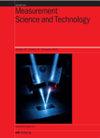Fast nonlinear cross-sparse filtering for rolling bearings compound fault diagnosis
IF 3.4
3区 工程技术
Q1 ENGINEERING, MULTIDISCIPLINARY
引用次数: 0
Abstract
The investigation of faults in rotating machinery has been thoroughly examined. Among the different methods under exploration, sparse optimization-based techniques have arisen as a highly desirable approach. However, in real industrial environments, the collected bearing signals often contain a random impact component resulting from changes in working conditions and load mutations. When a machine malfunctions, it can readily induce and generate new faults, resulting in composite faults. To address this challenge, this paper proposes a novel multidimensional blind deconvolution method named fast nonlinear cross-sparse filtering (FNCr-SF). The FNCr-SF aims to separate weak compound faults under random impact interference. Various preprocessing techniques, including Z-score normalization and nonlinear sigmoid activation function, are employed to amplify the faint characteristics of compound faults and minimize the influence of random interference. Furthermore, the FNCr-SF method enables adaptive decomposition of fault components without the need for prior knowledge or pre-processing. This approach effectively reduces random interference and accurately detects compound faults in bearings. Experimental and simulation signals validate the effectiveness of the FNCr-SF method in compound fault detection, demonstrating its high accuracy and robustness.用于滚动轴承复合故障诊断的快速非线性交叉稀疏滤波技术
对旋转机械故障的调查已进行了深入研究。在探索的各种方法中,基于稀疏优化的技术已成为一种非常理想的方法。然而,在实际工业环境中,收集到的轴承信号往往包含因工作条件变化和负载突变而产生的随机影响成分。当机器发生故障时,很容易诱发和产生新的故障,从而导致复合故障。为应对这一挑战,本文提出了一种名为快速非线性交叉稀疏滤波(FNCr-SF)的新型多维盲解卷方法。FNCr-SF 旨在分离随机冲击干扰下的弱复合故障。该方法采用了多种预处理技术,包括 Z 分数归一化和非线性 sigmoid 激活函数,以放大复合故障的微弱特征,并将随机干扰的影响降至最低。此外,FNCr-SF 方法还能自适应分解故障成分,而无需事先了解或预处理。这种方法能有效减少随机干扰,准确检测轴承中的复合故障。实验和模拟信号验证了 FNCr-SF 方法在复合故障检测中的有效性,证明了它的高准确性和鲁棒性。
本文章由计算机程序翻译,如有差异,请以英文原文为准。
求助全文
约1分钟内获得全文
求助全文
来源期刊

Measurement Science and Technology
工程技术-工程:综合
CiteScore
4.30
自引率
16.70%
发文量
656
审稿时长
4.9 months
期刊介绍:
Measurement Science and Technology publishes articles on new measurement techniques and associated instrumentation. Papers that describe experiments must represent an advance in measurement science or measurement technique rather than the application of established experimental technique. Bearing in mind the multidisciplinary nature of the journal, authors must provide an introduction to their work that makes clear the novelty, significance, broader relevance of their work in a measurement context and relevance to the readership of Measurement Science and Technology. All submitted articles should contain consideration of the uncertainty, precision and/or accuracy of the measurements presented.
Subject coverage includes the theory, practice and application of measurement in physics, chemistry, engineering and the environmental and life sciences from inception to commercial exploitation. Publications in the journal should emphasize the novelty of reported methods, characterize them and demonstrate their performance using examples or applications.
 求助内容:
求助内容: 应助结果提醒方式:
应助结果提醒方式:


